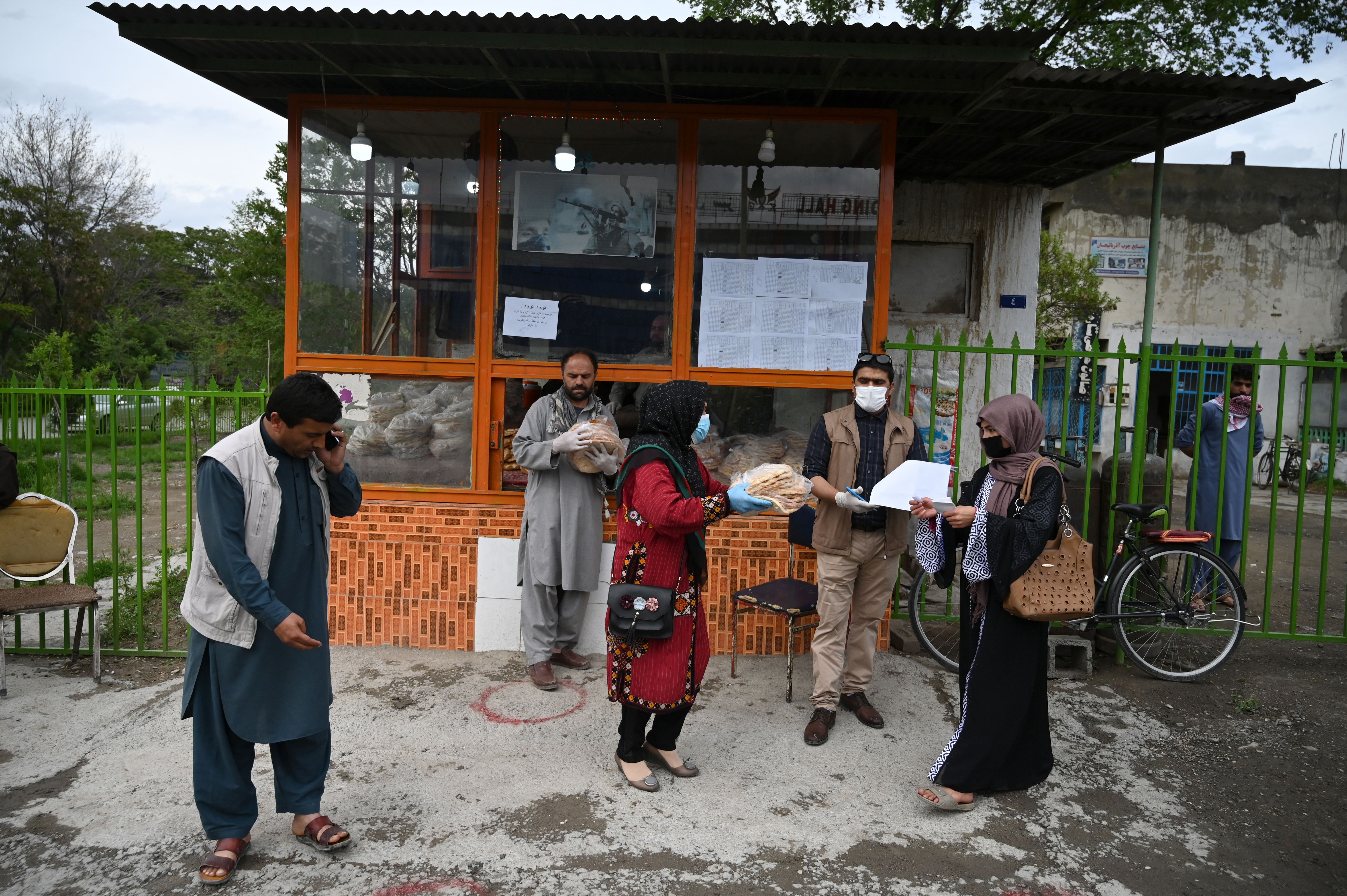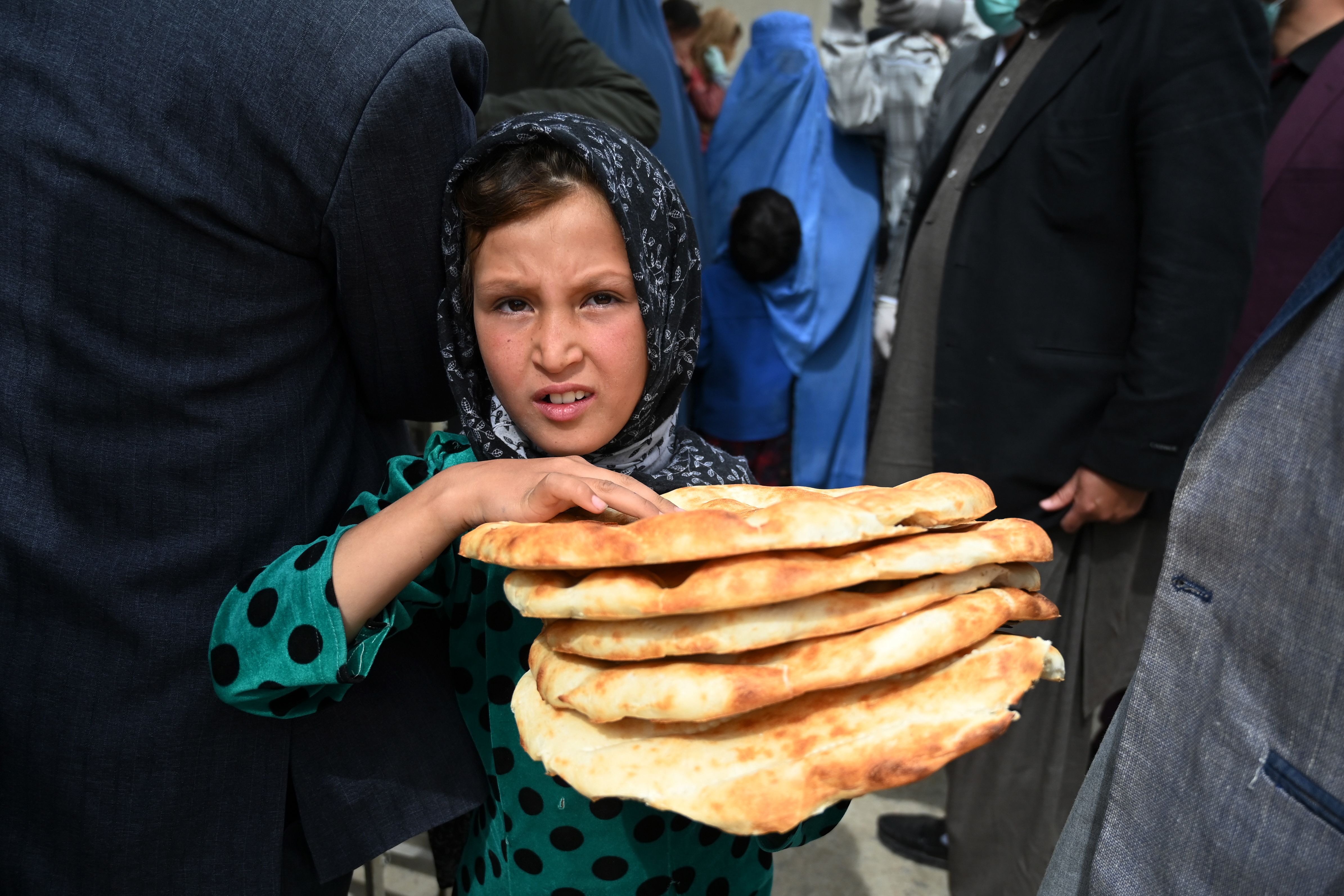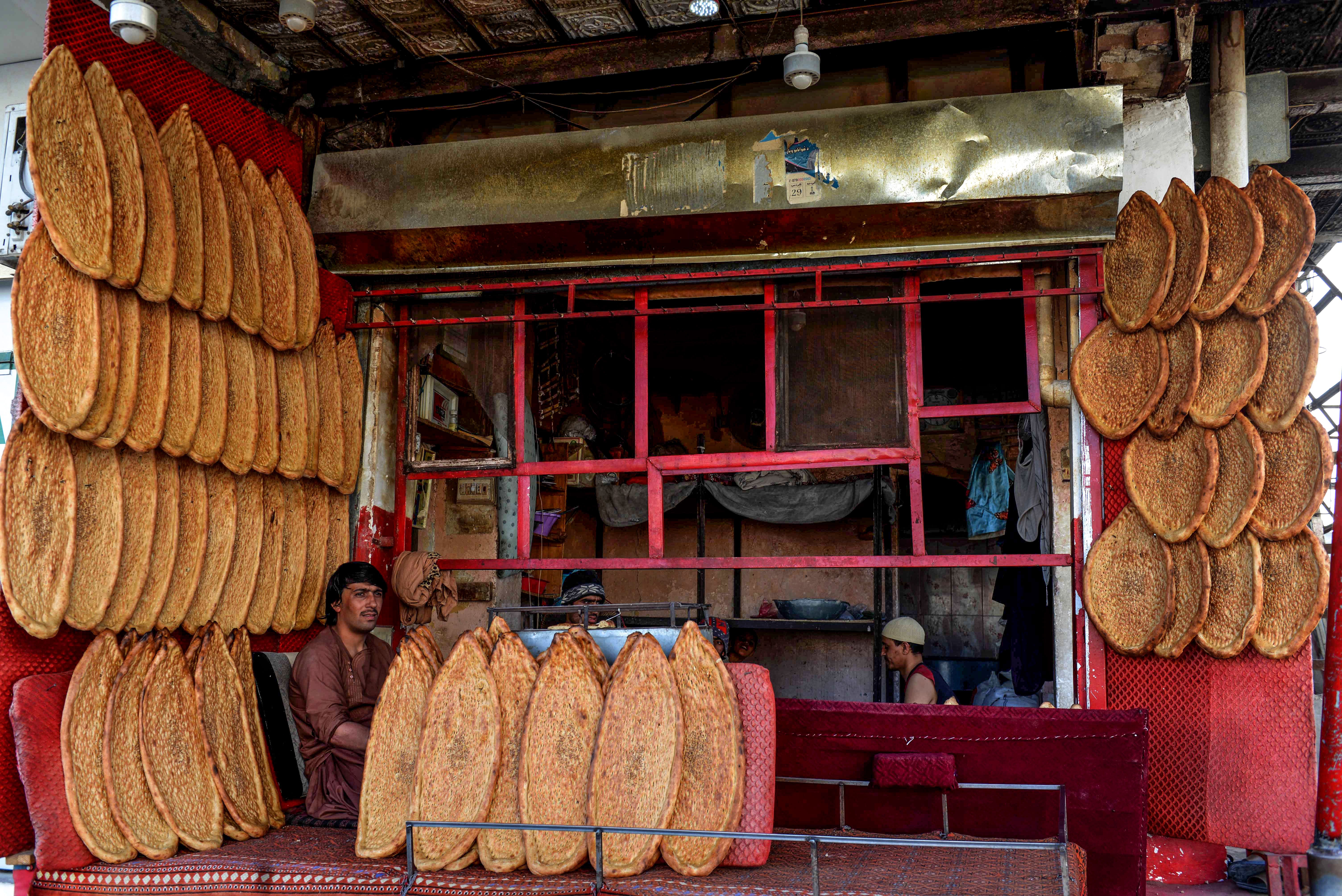Afghanistan’s government is distributing ten “Naan” breads per day to more than 250,000 families in the capital city Kabul as the country suffers surging food prices amid the coronavirus pandemic, Reuters reported Tuesday.
Due to coronavirus-related disruptions in supply chains and surging prices, Afghanistan’s government began distributing the free flat bread to alleviate some of the resource deficits many residents of one of the poorest countries in the world are experiencing, according to Reuters.

A woman receives free bread from the municipality outside a bakery. (Photo by WAKIL KOHSAR/AFP via Getty Images)
Naan is a leavened flatbread traditionally made in a cylindrical clay oven and often served in cuisines of Western and South Asia. The supply disruptions struck at the same time Muslims observe the Islamic holy month of Ramadan. (RELATED: ‘Baking With Lucy’: 97-Year-Old Woman And Daughter Teach A Lifetime Of Cooking During Coronavirus Lockdown)

A young girl leaves after receiving free bread from the municipality outside a bakery during the Islamic holy month of Ramadan.(Photo by WAKIL KOHSAR/AFP via Getty Images)
The bread distributing program is taking place in other cities impacted by the soaring prices, with a national food inflation rate that stood at 27% in April, an 11% increase from the month prior. Afghanistan’s headline inflation was an annual 12.1% in April.
“Given Afghanistan’s high dependence on imported food and non-food products, disruption in trade as a result of border closures can have a severe impact on domestic inflation,” Omar Joya, an economist at a think-tank in Kabul, told Reuters.

In this photo taken on May 2, 2020, a baker sits inside his bakery among breads as he waits for customers during the Muslim holy month of Ramadan in Kandahar city. (Photo by JAVED TANVEER/AFP via Getty Images)
A third of the population, which includes 7.3 million children, face food shortages in the country. The price of wheat flour and cooking oil in markets has risen by up to 23% in the past month as demand outstripped supply. Rice and sugar has also increased by 7-12% in cost, according to the BBC, which cited the World Food Programme (WFP) numbers.
As of May 5, Afghanistan had 3,224 positive cases of coronavirus and 95 deaths.


